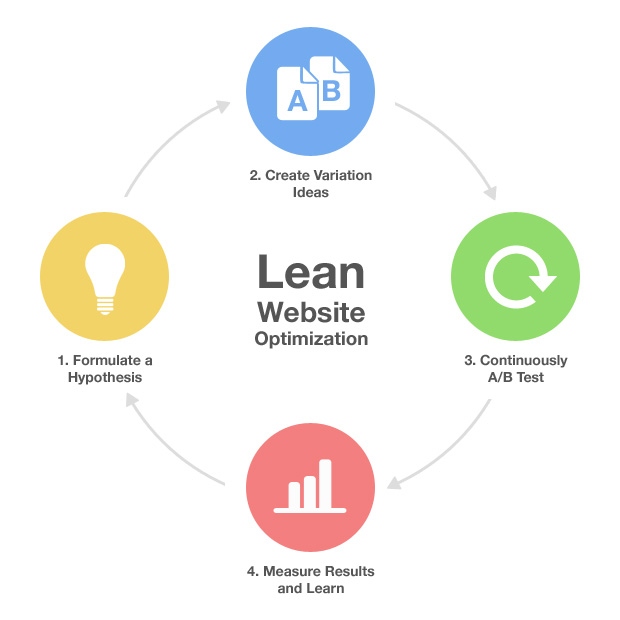
The speed of a website is a very important factor in the success of the site. Websites on which information is loaded quickly generally have higher SEO rankings. They also have higher conversion rates, lower bounce rates, longer visit duration and also a simply better user experience. Therefore, it is important to take advantage of the best website speed testing tools in order to achieve the best performance possible. In the article below, we will discuss the best speed testing tools for your site so that you can take measures to optimize the speed of your site.
It is important for your website to have reliable and fast-loading information. In addition, Google has incorporated the speed of the website as a ranking factor, so it is important for the site to load quickly for your visitors.
1. Google PageSpeed Insights
Google Page Speed Insights is one of the best tools for evaluating the performance and speed of the website. The tool displays the results of the analysis on a scale from 1-100. If you get a score around 50, the performance of the site is poor. But if the analysis score is higher on the scale of 75, then the performance and speed of the website is very good. The tool is developed by Google and offers analysis and reports on your desktop. It can provide recommendations for improving the performance of the website, indications for minimizing CSS, as well as tips for image optimization.
The tool has a category for mobile website reports. It offers information about viewport configuration, font size, and the size of clickable elements such as hyperlinks and buttons.
2. Pingdom
Pingdom is known for its free website speed test tool and is a market leader in monitoring services. The Pingdom Website Speed Testing Tool is very intuitive and easy to use and can be a great way to start monitoring a website, especially for beginners. The tool allows you to filter the upload time, the upload order, as well as the file size. It also offers a speed evaluation performance, scored out of 100. This way you will have different perspectives for improving the site performance. This rating has been divided into 12 criteria and each one offers an individual score. You can look at those aspects that can provide real improvements for the speed of the website.
3. Uptrends
Uptrends is a speed test tool that offers more than 30 locations to choose from when you want to run the test. The analysis report is divided into two parts: into groups of domains and a breakdown of the cascade. The groups of domains offer an incomparable perspective, because they divide the resources into different sources: statistics, social, announcements, CDN, first part and third party overall.
4. Dotcom-Monitor
Dotcom-Monitor offers a lot of very useful and free tools, one of the most useful tools is the speed test tool. The tool allows you to quickly test the speed of your site from more than 20 locations around the globe. In other words, a user can run a test simultaneously from multiple locations. The tool also allows you to run a test from several different browsers.
The speed test reports are divided as follows: performance, host, errors, slow and fast elements, cascade diagram and detailed summary.
5. Sucuri Load Time Tester
Sucuri Load Time Tester is another useful tool for testing the speed of your website. The tool allows you to test the performance of any site across the globe. Sucuri Load Time Tester can check your website from more than 15 locations, showing you the time taken from each location, the average response and the degree of performance. It is very easy to use and lets you know the time required to connect your website. You will know the time it takes for the information to be sent back to your browser and start processing the page.
6. WebPage Test
WebPage Test is one of the most popular tools for measuring the performance and speed of a web page. Through the tool, you can run web performance tests on your site from different locations around the world, on different browsers. So, with this tool you can do the following: you can perform advanced tests, such as blocking content, video capture, multi-phase transactions, you can run the Chrome browser at real consumer connection speeds, provide diagnostic information that contains page speed optimization checks, loading cascade diagrams, as well as different suggestions for a better user experience.
7. KeyCDN Website Test Speed
KeyCDN Website Test Speed is a tool for analyzing the performance of your website and will help you identify connectivity issues. It will also help you prevent certain actions and possible unauthorized attacks. With this tool, you can generate a real-time report, it also has a RESTful API that approves the complete control over your account in any application and in any language and it can be easily configured according to your specifications.
8. Yslow
Yslow is a performance and comprehensive tool for testing the speed and performance of your website. The tool must be installed as an add on browser. The Yslow tool is free to use and accepts most popular web browsers. Yslow focuses its attention on 23 factors that can influence the speed of a website. The too; offers a detailed analysis based on these factors. The areas are rated from A to F, making it easy for you to see the weaker areas, which can be subsequently improved.
9. GTmetrix
GTmetrix is a very popular tool for analyzing and testing the speed of the website. It is very easy to use and is suitable for beginners. The tool offers a comprehensive analysis, combining the recommendations offered by Google Page Speed Insights and Yslow. GTmetrix offers an analysis at the top of the page and information about the total page loading time, as well as the page size. It also provides information on your requests in a cascade chart, where you can easily identify areas with bottlenecks. You can even download the cascade chart for further analysis.
10. Varvy Page Speed Optimization
Varvy Page Speed Optimization is a tool to test the speed of your website and was developed by Patrick Sexton. Patrick Sexton was also responsible for creating GetListed.org, which is now called Moz Local. The website's speed and performance measurement tool uses graphical representation.
Reports are displayed in 5 different sections that include a resource diagram, JS usage, services used, speed issues and CSS delivery. You can also find a lot of documentation for optimizing your site by following the tutorials that cover various topics — information about delaying JS upload, critical rendering path, caching of the browser and so on.
Conclusion
Website speed and performance testing tools are very necessary to track site performance, improve it, and enable users to have a pleasant and easy experience on your website. Do not wait to load your site faster, but take action using the tools listed above.
Web Optimization
Talk with our specialists today!
Submit your request to the appropriate Dept. so, we will review your needs and propose a tailored solution for you!
ASK QUOTE



























